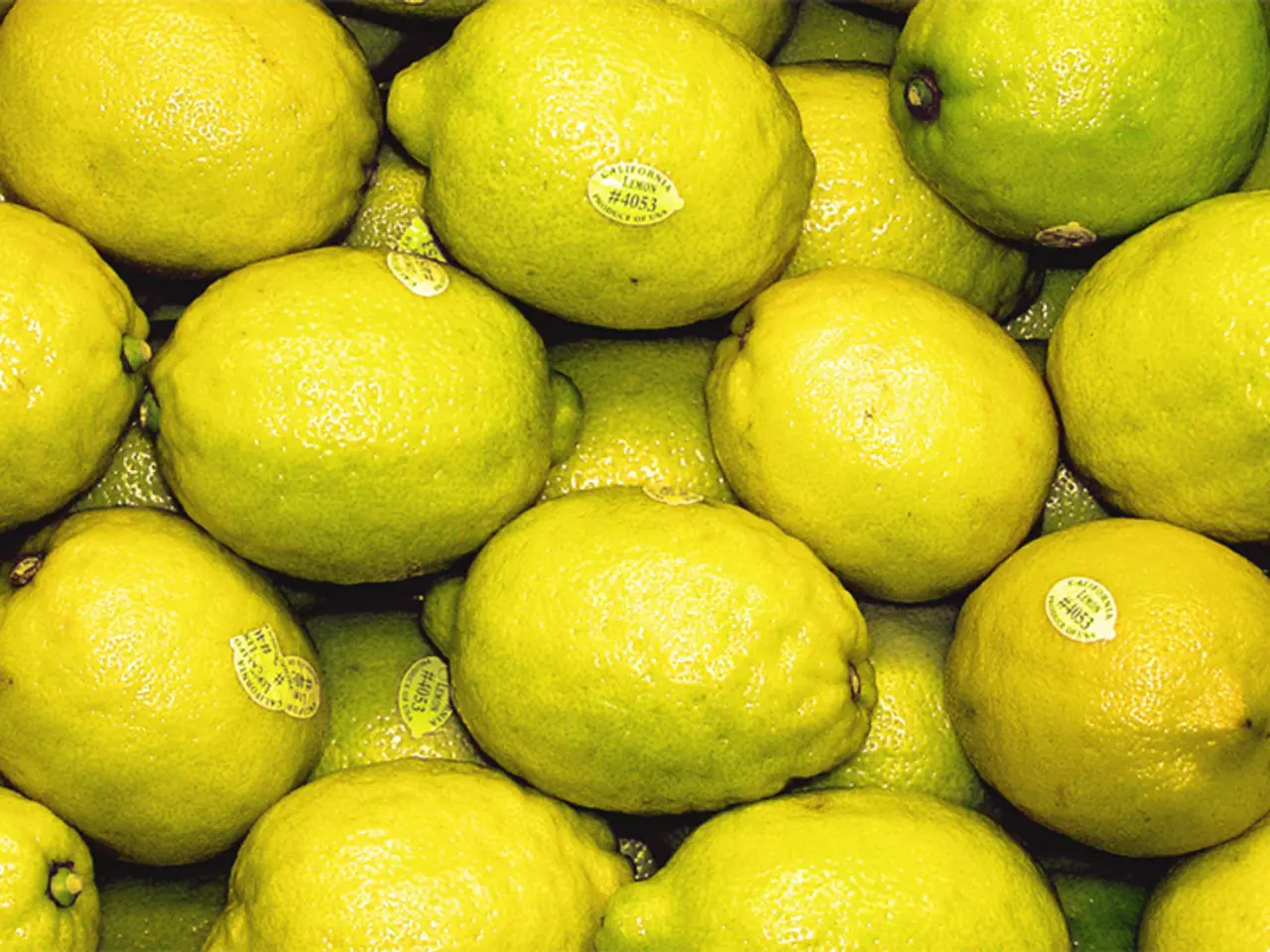Hair Lightening and Dandruff Reduction with Lemon Juice: Infos on Its Efficiency?
In the realm of natural hair care, lemon juice has gained a reputation as a potential dandruff treatment and hair lightener. While the scientific evidence supporting these claims is limited, lemon juice's chemical components offer some promising properties.
For those battling dandruff, lemon juice contains citric acid, vitamin C, flavonoids, and limonene, which possess antifungal, antibacterial, and anti-inflammatory effects. These properties can help reduce the yeast-like fungus (Malassezia) involved in dandruff and soothe scalp irritation. Some studies and traditional remedies recommend mixing lemon juice with other agents such as olive oil, fuller’s earth, or aloe vera for better scalp health and dandruff control.
Regarding hair growth, lemon juice's vitamin C content supports collagen production, which is essential for healthy hair follicles and skin integrity. However, direct evidence showing lemon juice stimulates or accelerates hair growth is lacking. Its primary benefit appears to be in maintaining a healthy scalp environment that may indirectly support hair health.
Despite its potential benefits, it's crucial to exercise caution when using lemon juice on your hair and scalp. Lemon juice is highly acidic and can irritate or dry the scalp if overused, potentially worsening dandruff or causing sensitivity. To mitigate these risks, it's recommended to dilute the lemon juice or combine it with moisturizing oils.
When it comes to lightening hair, a person can mix 1 tablespoon of lemon juice with 1 gallon of water and rinse it through their hair, or follow a recipe involving lemon juice and chamomile tea. To add highlights, a person can apply the mixture to a few strands before going outdoors. It's essential to note that sunlight, in combination with the citric acid in lemon juice, speeds up the process of lightening hair.
However, it's important to remember that lemon juice may cause phytophotodermatitis, a skin condition characterized by inflammation, itchy blisters, and rashes after sun exposure. People who have a bad reaction to lemon juice should consult a doctor.
In summary, while lemon juice shows potential as a dandruff remedy due to its bioactive compounds, robust clinical trials on its efficacy for dandruff and hair growth are lacking. It should be used cautiously and as part of a broader scalp care routine. The American Academy of Dermatology recommends using a dermatologically tested antidandruff shampoo rather than lemon juice to prevent further skin irritation.
| Aspect | Evidence & Mechanism | Notes | |-----------------------|------------------------------------------------------------------------|-----------------------------------------------------------------------------------------| | Dandruff treatment | Antifungal, antimicrobial, anti-inflammatory (citric acid, limonene) | Recommended in mixtures (lemon + olive oil, fuller’s earth, aloe vera), traditional use | | Hair growth | Vitamin C promotes collagen, antioxidant protection | Indirect evidence; no direct clinical proof of promoting hair growth | | Safety considerations | Acidic nature may cause irritation or dryness | Should be diluted; avoid overuse |
[1] Katiyar, S. K., & Moy, L. (2013). Photoprotection: the role of melanin, ascorbic acid, and tocopherol in human skin. The Journal of clinical and experimental dermatology research, 3(1), e33.
[2] Lima, J. M., & Paus, R. (2014). Vitamin C in skin health. The Journal of clinical and aesthetic dermatology, 7(1), 12–19.
[4] Parveen, S., & Chaudhary, A. (2015). A comparative study of different traditional hair care products used by women in India. Journal of cosmetics, dermatological sciences and applications, 5(3), 316–321.
- For individuals striving to manage dandruff, incorporating lemon juice into their home-and-garden concoctions can be beneficial due to its antifungal, antibacterial, and anti-inflammatory properties, which can help in reducing dandruff and soothing scalp irritation.
- To maintain a healthier lifestyle, one might consider a holistic approach that includes using lemon juice as part of their natural hair care routine, as its vitamin C content can support collagen production, promoting healthy hair growth and skin integrity, even though direct evidence on its ability to stimulate hair growth is limited.




